GAY FOR PAY
Criss, Blanchett, Gyllenhaal and more
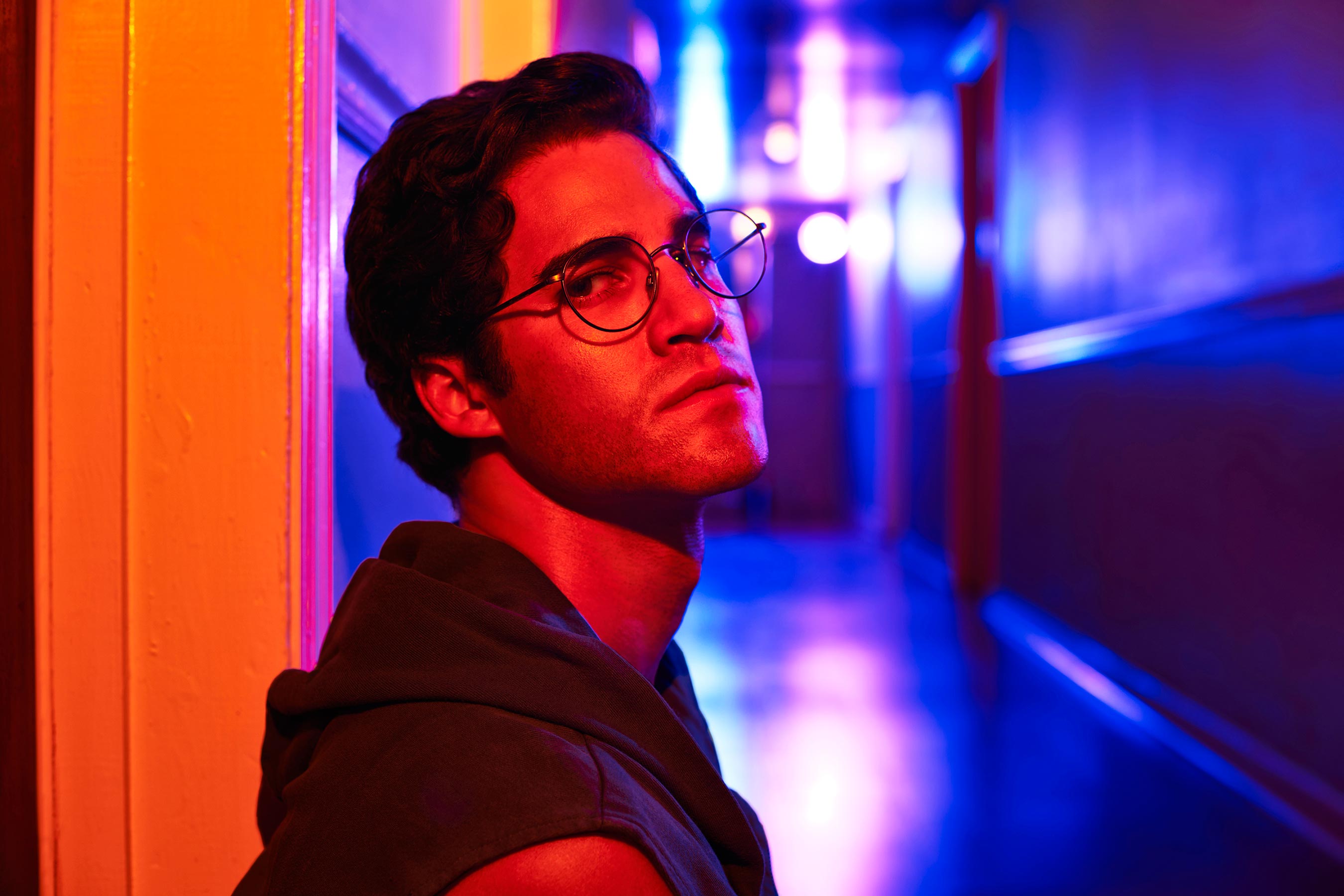
When Making Love, the first mainstream Hollywood movie to deal with homosexual themes, came to theatres in 1982 I remember going to see it with a group of friends and feeling emboldened. Finally, here was a movie about people like us. There had been gay-themed movies before, IMDB cites 1916’s Vingarne, a Swedish film about two men who are involved in a three-way relationship with a woman, as the first. It’s safe to say that many gay-themed films made before the American Psychiatric Association removed homosexuality from its official Diagnostic and Statistical Manual of Mental Disorders in 1973, depict homosexuals as troubled (Rebel Without a Cause), limp-wristed outcasts (Tea and Sympathy) who were either emotionally unstable (Suddenly, Last Summer), self-loathing (Midnight Cowboy), and pedophiles (Death in Venice) who were either wrongfully accused (The Children’s Hour), victims (Victim), or villains (Clifton Webb in Laura), that objectified heterosexuals (Thirst), and featured gay Stepin Fetchit-like stereotypes (Andréas Voutsinas as Carmen Ghia in The Producers) or deranged sex addicts and killers (The Detective).
It wasn’t until 1961’s A Taste of Honey that audiences saw the first positive depiction of a gay character on the screen. In the closeted, pre-Stonewall era when the Hays Code set the industry moral guidelines that, if breached, could cause actors to lose their studio contracts, it’s no surprise that, gay actors weren’t begging their agents to land them gay roles. On the contrary, in order to cover up their unconventional lifestyles, stars like Rock Hudson had to resort to marrying their agents’ secretaries to avoid exposure.
One would think that all that has changed in the thirty-nine years since Making Love opened. It hasn’t. Even in modern day America where gay marriage is the law of the land and Hollywood awards shows are rife with actors sporting red ribbons, things really haven’t changed. Straight actors can play gay roles, gay actors can play straight roles but gay actors rarely play gay roles.
There are the exceptions, especially when it comes to the ladies. Sarah Paulson played a lesbian in 1991’s The Other Sister and TV’s American Horror Story: Asylum, Kristen Stewart was ax murderer Lizzie Borden’s love interest in last year’s Lizzie, and Ellen Page played a New Jersey policewoman battling to secure pension benefits for her lesbian partner in Freeheld. But it’s a different story for gay men. A lot of the screen time afforded to gay male actors in gay roles is in gay movies made to appeal to straight audiences. Think Nathan Lane in the American remake of La Cage Aux Folles and Harvey Fierstein in Mrs. Doubtfire.
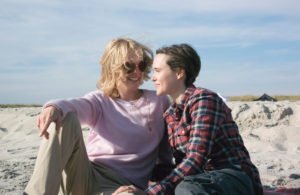
Why is it when it comes to casting, Hollywood seems to embrace lesbianism while shying away from male homosexuality? Hollywood is “an extremely conservative world” that “pretends to be a liberal world,” actor Rupert Everett told BBC’s Radio 4 in 2010. The actor who played gay roles in My Best Friend’s Wedding and The Next Best Thing, claims he never got a job in Hollywood after coming out. The imbalance between the acceptance of lesbianism and male homosexuality may have something to do with the fact that girl-on-girl love is the stuff of many a straight man’s fantasy — highly eroticized and commonplace in heterosexual pornography. The fact that Hollywood is still a boys’ club only compounds the inequality. Although females account for 50.8% of the population, they only represent 39% of The Motion Picture Academy of Arts and Sciences’ (AMPAS) membership.
Since its inception, AMPAS has recognized 59 straight actors with nominations for playing LGBTQ roles with 25 of them occurring since the year 2000. This year, both the Best Actor (Rami Malek) and Best Actress (Olivia Colman) Oscars went to straight actors playing gay characters, and 6 out of the 20 nominated performances were for LGBTQ roles. With statistics like that, it’s no wonder that straight actors covet meaty gay parts, no pun intended.
In the seventy-seven years since Monty Woolley was nominated for his role in The Pied Piper, 20 LGBTQ men have been nominated for Best Actor but only one, Ian McKellen, for his role in Gods and Monsters, self-identified as gay at the time of his nomination. He did not win. “No openly gay man has ever won the Oscar,” he told The Guardian, “I wonder if that is prejudice or chance.”
Similarly, 11 Best Actress nominees have been LGBTQ but only Jodie Foster, who came out as “single” during the 70th Golden Globe Awards, has walked away with two Oscars in the category, although both were presented decades before she came out.
18 LGBTQ actors have been honored with Best Supporting Actor nominations with The Crying Game’s Jaye Davidson being the first publicly out among them. There have been 9 LGBTQ nominated women In the Best Supporting Actress category but Linda Hunt (The Year of Living Dangerously) has the unique honor of being the first out lesbian to win and the only person to win for portraying a person of the opposite sex.
The issue of playing gay for pay on the big screen and television has become a political hot potato and Darren Criss, this year’s Golden Globe Award winner for his role as gay serial killer Andrew Cunanan in The Assassination of Gianni Versace: American Crime Story, turned up the heat when he pledged to turn down future gay roles. “I want to make sure I won’t be another straight boy taking a gay man’s role.” With his statement, Criss, who also appeared on Broadway as the transgender titular character in Hedwig and the Angry Inch, has sparked a debate that has both homosexual and straight actors asking, should gay roles be reserved for gay actors or should the best actor get the part regardless of their sexual orientation?
We need to look at the reasons why more LGBTQ actors are not playing these roles. When UCLA’s William’s Institute surveyed 5,700 SAG-AFTRA members in 2013, they found that despite all of its chest-beating liberalism, Hollywood is still a pretty homophobic place. The findings were sobering: 53% of its LGBTQ members believe that directors and producers are biased against LGBTQ performers, 40% believe that casting directors are biased against them, and 45% of them believe that casting directors and studio executives see them as less marketable in romantic leads. Sadly, the 4,845 heterosexual respondents agreed — 34%, 29% and 15% respectively. Given those finding, it’s not surprising that LGBTQ roles are going to straight actors.
So how do straight actors feel about playing gay? While the SAG-AFTRA study found that only 3% of straight actors felt playing gay had an effect on their being typecast, 26% of lesbian/gay respondents saw it as career kryptonite, which had an effect on their ability to secure subsequent straight roles. While there is no empirical data to back up the claim, it appears that this not an issue for well-known, established talent. The questions most often asked of movie stars who take on LGBTQ roles usually focus on how they approached playing the part or whether they had trepidation about accepting it.
While promoting the release of Brokeback Mountain, Heath Ledger was asked if he had any reservations about taking the part of Ennis Del Mar in Ang Lee’s masterwork. “It’s a story of a human being, two souls being in love. We’re showing that love between two men is just as infectious and emotional, as strong and pure as heterosexual love.” Years later, his co-star, Jake Gyllenhaal reflected, “I know a lot has been made of the choice to do it, but it just didn’t seem like something that was scary to me. I’m in the business of helping get stories told. People don’t say to me, ‘When you were in Proof, were you afraid to play a mathematician? Or ‘Was it scary to play a Marine in Jarhead?’ Why is that?”
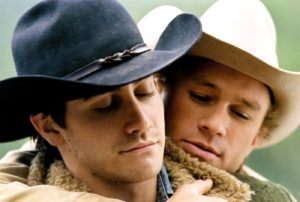
When asked about playing a lesbian in Carol, Cate Blanchett, said “It’s not until I’m confronted with these questions that I even think about it. Of course, it’s important that both the protagonists are female, it’s a very important obstacle…whether you’ve got a love scene between yourself and a man or yourself and a woman it’s equally embarrassing.”
Rachel Weisz who has played lesbian in two recent films (Disobedience and The Favourite) had no qualms about accepting the roles and, having optioned the book rights for Disobedience, was integral in getting the film made. When asked how she prepared for the role she said, “I knew this woman was a person I loved. There was no research. I know what love feels like.”
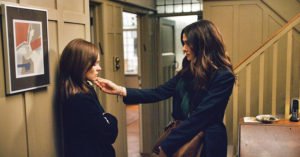
Perhaps Armie Hammer, who played it gay in Call Me By Your Name said it best, “I look at this movie and what I see are the base underlying emotions that every single human being feels. Regardless of your orientation or identification… when you watch this (movie) and see two people purely and organically…without tension or punishment, just fall in love with each other, regardless of who you’re with, it will remind you of the first time you fell in love or got a crush on somebody…those things that make us all human.”
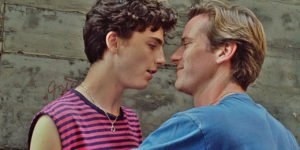
So, is Hollywood’s undercurrent of homophobia stymieing an actor’s freedom to come out? According to the SAG-AFTRA study only 35% of lesbian/gay respondents would encourage a lesbian/gay performer to come out, while only 26% of heterosexuals and 23% of bisexuals would. When it comes to who is the most closeted group in Hollywood, bisexual men win hands down. Regardless of their self-described sexuality, the majority of actors would neither encourage or discourage their LGBTQ colleagues to come out. Which made me think back to that day in 1982 when I trekked to the theatre to see Making Love, and was so happy to see a coming out story on the screen. I could never have imagined how far we’d come and how far we still have to go.

